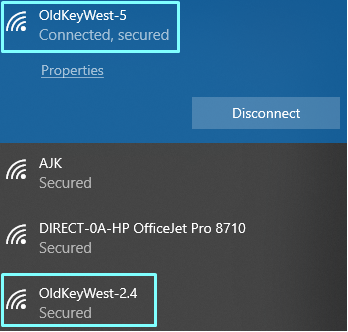The novel coronavirus known as COVID-19 needs no introduction. By now, all of America has moved to social distancing and most of us are running our home care agencies from home.
I'm sure that by now you've received emails from the CEOs of every company, health institution and academic institution you've ever heard of telling you that they care about your safety and then telling you what they're doing to keep you safe. In some cases these solutions are literally what they're doing to keep you safe while for many others (like our kids' schools) they're telling us that their operations are running in limited capacity or shutting down for a while.
The goal in this case is not to repeat what you're hearing virtually everywhere else, but rather to focus on specific best practices for home care agencies during the crisis.
There’s a lot to learn and know about COVID-19. On your left will appear a menu of topics or you can scroll down to see them all. Note that much of this information has been shared by home care agencies that we're working with and from home care vendors other than Ankota. In each of these cases, we're giving them credit and where available directing you to the resources on their sites.
Ankota COO, Sara Moore shares a story about how COVID-19 has affect her family in a blog post that you can read here.
There's a new website called Be Wise - Immunize that has information about getting immunized in each of the 50 states. To access the site, click here or click on the image below:
Several organizations have stepped up to provide free COVID-19 education for home care agencies. Here are two of them:
From Home Care Pulse:
From Care Academy:
Common (but not all possible) symptoms of the coronavirus:
Seek immediate medical attention if showing any of these signs:
Washing Hands:
Safely covering your face:
This video, courtesy of KHQ TV, truly shows the benefits of wearing a mask.
Living and working in social isolation is scary for everyone and unprecedented in our lifetimes, and if it's scary for us, imagine how the elderly seniors who we care for feel. As agency owners and home care managers, our industry isn't easy to begin with and when a global pandemic comes along, it doesn't get easier. Most of what we've shared here talks about "what" to do in the face of this crisis. We also have to think about "how" we need to do it, and the answer is that we need to do it with compassion.
Here are some ideas for acting with compassion during the COVID-19 crisis:
Home care attorney Elizabeth E. Hogue, Esq. has been so moved by the COVID-19 crisis that she shared a recent email entitled "A Love Letter to Home Care" which is shared below:
For Ankota's customers and other users of other home care software working remotely due to the effects of COVID-19, here are a few tips, suggestions, and Best Practices to help make the transition from office to remote working as smooth as possible.
Here are a few notes on how to work efficiently and to stay motivated through this challenging time.




We're all in this together, and we'll get through it as a community. If you have additional suggestions, let us know and we'll share them in an upcoming note.
COVID-19 will cause missed visits home care visits for several reasons, including the following:
Your home care software should track visit cancellations and have cancellation reasons. Your steps forward are as follows:
Another capability of your home care software is it's ability so assign care plan tasks to your clients and having caregivers report on the completion of tasks or the status of clients.
Several Ankota clients have already supplemented the care plans of all their clients to ask COVID-19 related questions. A set of questions, courtesy of Elara Caring in Missouri are as follows:
Home Care Pulse, who also provided one of the free COVID-19 training modules (see above), shared a strong article about how to retain both clients and caregivers during Covid-19. You can click here or click on the image below to view it.
There's an overabundance of information on COVID-19 but these are some of the most authoritative sites covering the COVID-19 pandemic:
Many home care agencies have instituted screening protocols to ensure that their caregivers are not exhibiting COVID-19 symptoms before they start their work day. Here's a video of Ankota's COVID-19 screening capability.